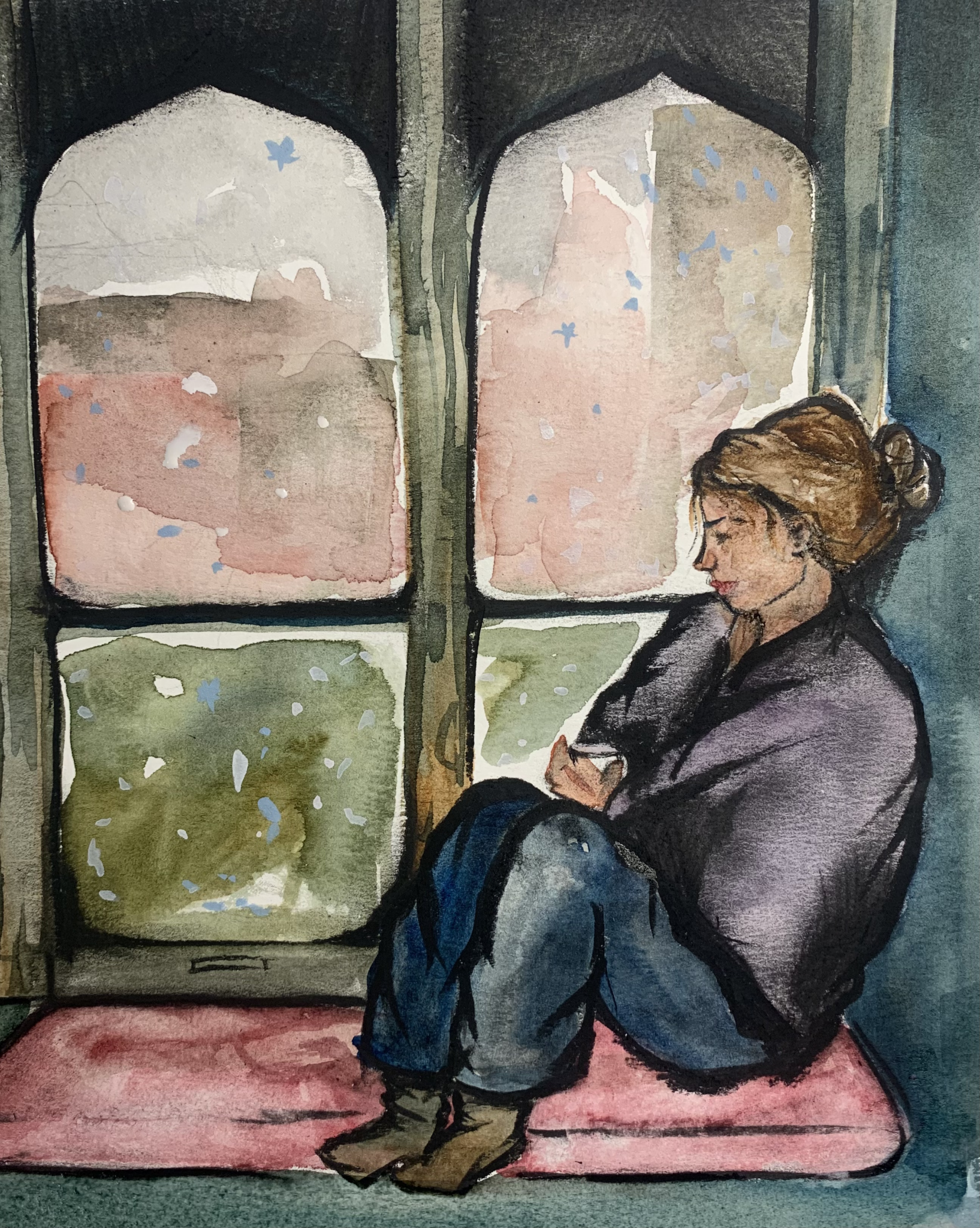
Whenever I miss home, I think of a specific scene:
I walk down the stairs. The sun is just rising: I can see the pinkish-orange light starting to filter through the windows facing the mountains. It’s painfully early, and I am painfully awake. My dad’s already up, and is working on the Seattle Times Jumble: it’s like the Wordle — but in print — and you already have the letters. A bowl of peanut butter oatmeal waits for me. I take my seat at my end of the table, and turn to the Nation page, A2, with the ticker-line of “odds and ends” and “on this day in time.” For 15 minutes, we enjoy the quiet chirping of the finches that haven’t yet mistaken glass windows for air, and the momentary peace before a busy day yet to come.
My most favorite moments of 2023 have not come in the highs — not by a long shot. Many of them have instead come in destabilizing moments of solitude. They are the moments when all of a sudden, I snap out of it all, and realize that I see the same little flock of fat finches on the sidewalk beneath the Branford dining hall every morning, and that there are always three little birds who don’t seem to be afraid of me walking by. It’s those “what the hell?” moments that sharpened my focus on that feeling I have at the kitchen counter with my dad. Or, alternatively, the moments when I narrowly avoid getting hit by a car crossing Elm. I want to say to the honking Kia driver: “Oops. I was distracted, but for some reason, it felt great.”
I think we all have those moments at Yale when we float above the crowd. The feeling is more acute at the beginning of the year, when the first-years arrive and the intensity of the journey here comes back into focus. I was reminded of this intensity a few days ago, when I saw what admissions officers had written about me in my Yale admissions file. I was told I shouldn’t look at it before junior year, but I wish I hadn’t heeded that advice. There was little in there I didn’t already know, but much I needed to be reminded of.
After I saw my admissions file, it was clear that something hadn’t come across: I had kept something to myself, even if unconsciously. I played the cello from third grade all the way to the end of high school. It was something I loved to do. Never particularly competitive, I was part of a truly wonderful school music program and did my best, diligently practicing and asking for harder music when I had the chance. My alarm would go off at 5:30 a.m. on days when I had solo auditions for orchestral pieces, and I would run through tricky measures until the reps did more harm than good.
I remember spending hours on a section of Elgar’s “Nimrod” during my freshman fall of high school, a piece traditionally played to honor a director or conductor of an orchestra who has passed away. The summer before, our conductor had died in a tragic swimming accident. The piece wasn’t technically difficult, rather emotionally charged: it had matter to it. When I graduated, it was “Nimrod” playing in my head as I left my high school parking lot, a farewell to the highs, lows, wins, losses and everything in between.
Today, my cello is more of an expensive coat rack than anything else. I auditioned for an orchestra the first week of my freshman year, but didn’t get in. I absolutely boofed a sight-reading passage — never my strong suit — and was so overwhelmed by the first week of college that I left the audition in tears. In the time since, I’ve only played for myself, if my neighbors allow it. Cello was, and always will be, something I do for myself, and now, by myself.
In my admissions notes, there was no mention of cello: but at the same time, I didn’t write about it. It only showed up on my transcript, as “Chamber Orchestra, grades 9-12.” In high school, I was in the music crowd. At Yale, I float above it. And in 2023, I feel I’ve floated above it all. “Nimrod” will come on — thank you, Spotify Wrapped — or I’ll listen to my friend sing in Schola Cantorum; or someone will run one of any number of red lights; or I’ll see the fat finches and I’m taken back to my scales at 5:30 a.m. Taken back to the sometimes painful, but always profound solitude that has come to define this year.







